Key Takeaways:
- Supply chain transparency is crucial for fashion brands to meet sustainability regulations and consumer demands, requiring advanced traceability technology.
- Digital Product Passports (DPPs) are becoming essential tools for brands to provide comprehensive product information and comply with upcoming EU regulations.
- Ettos offers a centralized platform that helps fashion brands manage supply chain data, achieve traceability, and support sustainability initiatives like recycling and resale.
In this collaboration with ettos, The Interline explores the mandate for supply chain transparency, and looks at how technology is responding by enabling brands and retailers to simultaneously streamline their supply chain and build in the right level of traceability to support compliance and disclosure.
Ettos speaks from experience: the company’s fully integrated digital platform is designed to support brands in managing their environmental, social, and corporate governance (ESG) claims, track full product journeys ending in the deliverable of a ‘Digital Product Passport’, and engage effectively with their verified suppliers at batch level.
The right technology: a blueprint for a better supply chain
While it flows from one end to the other, the fashion supply chain is not exactly linear. Adriana Batty, a sourcing veteran who has now parlayed that first-experience into creating sourcing and sustainability software, suggests a different way of thinking about it. The supply chain should be thought of as having a multitude of branches – and there are many different things affecting those branches at any given time.
Fashion professionals know just how complex and layered the industry’s supply chains are. Some of the reasons for this are that fashion uses a global sourcing network for materials and production, and that there are multiple stakeholders involved from raw material suppliers to manufacturers, designers, logistics providers, and retailers. All of this is made even more complicated in that there has never been such rapid demand for rapid product turnover – requiring tight coordination to meet short lead times – while sustainable and ethical supply chain practices are becoming a priority for consumers. The cherry on top is that there is a slew of new sustainability regulations for fashion and textiles that brands need to be gearing up for with serious intention and without delay.
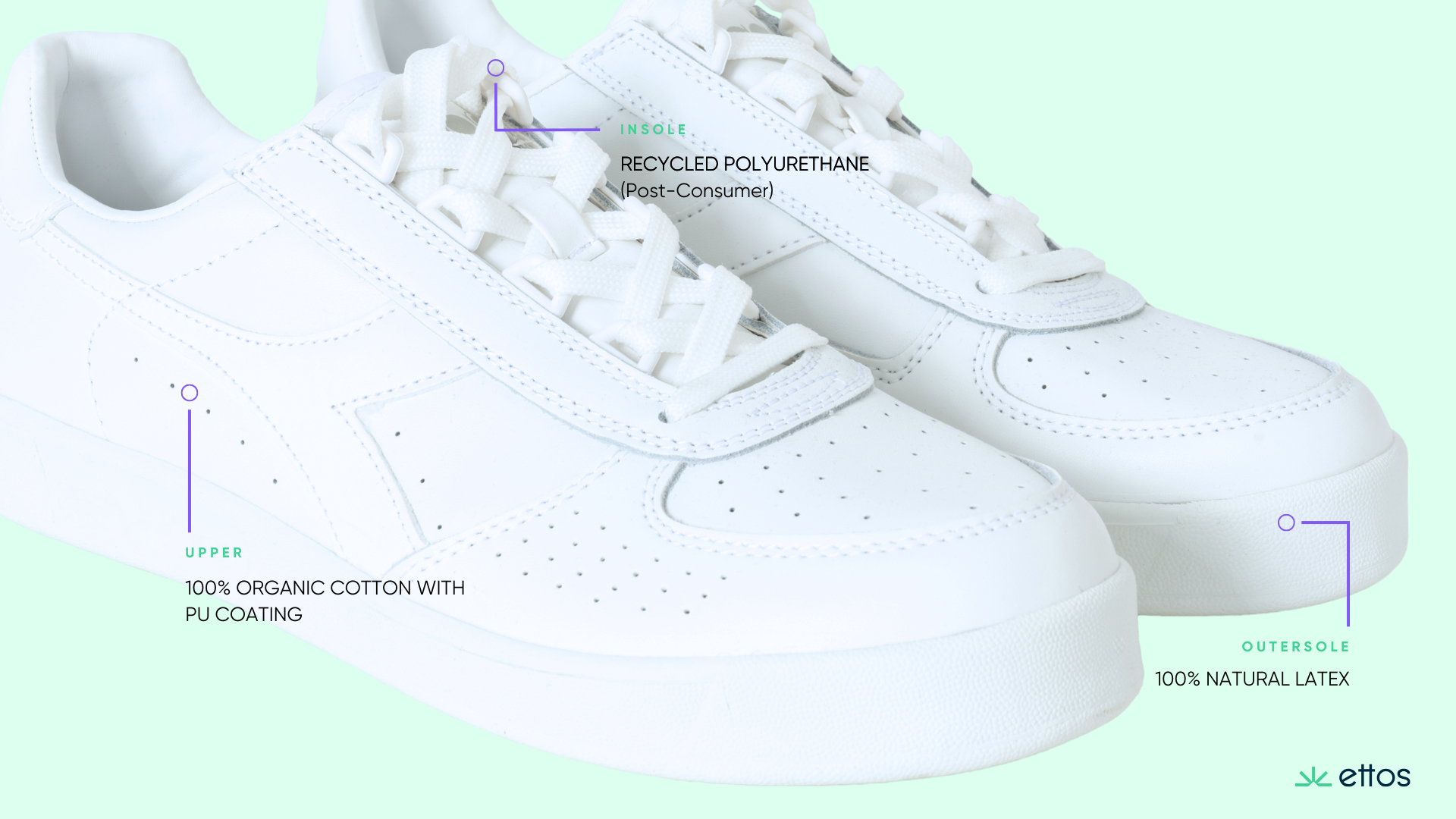
This is where the right kind of technology can play a major role. Talking here about the kind of technology that has been crafted from first-hand, industry experience, and is designed not from a technology perspective, but from the perspective of a fashion company.
With her co-founder, Gianni Romano, Adriana recognised that for many brands, creating dedicated sustainability teams and strategies is something fairly new – and something that falls outside the traditional sourcing wheelhouse. Drawing from their experience from their first app, Lyfcycle, the pair launched ettos, which was designed to help brands and retailers build out an accessible and comprehensive traceability system that puts a practical face on compliance and the creation of digital product passports – something they believe the industry needs.
Demystifying Digital Product Passports (DPPs)
Before going any further, there are many different definitions as to what DPPs are. In essence, a DPP is an online record that captures detailed information about a product’s full lifecycle – including its origin, materials, environmental footprint, and end-of-life disposal guidelines. The primary goal of DPPs is to bridge the transparency gap and provide consumers, and other relevant stakeholders with accurate data on product supply chains that have historically been difficult to access.
Due to the high demand for this type of information, the European Union (EU) has introduced DPPs as a key component of the proposed Ecodesign for Sustainable Products Regulation (ESPR), which came into force on the 18th of July 2024. However, DPPs will only be mandatory on new textile products sold in EU markets from 2028.
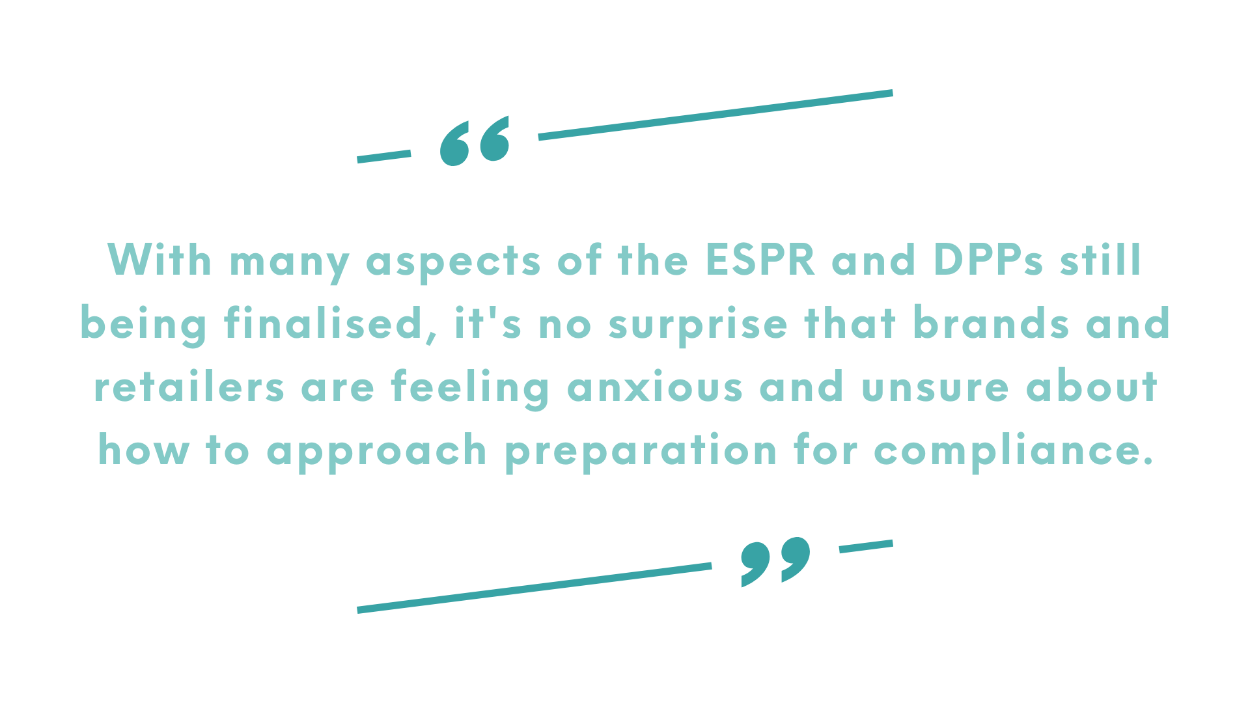
With many aspects of the ESPR and DPPs still being finalised, it’s no surprise that brands and retailers are feeling anxious and unsure about how to approach preparation for compliance. Alongside this, a lack of dedicated resources & sustainability teams makes it more challenging for brands to handle the ever-increasing compliance workload. Whilst technology can help brands become more efficient, this lack of resources can also hamper their speed to adopt and leverage new innovations, resulting in missed opportunities for optimisation. As a result, regulations seem even more daunting, making it difficult for brands and retailers to stay ahead of the curve and implement sustainable practices effectively.
Ettos sees DPPs as a critical component of traceability and transparency for fashion’s supply chain, and is working with their partners to make sure that there is a foundation of understanding built around DPPs first. Adriana Batty explains that a basic supplier database can be used to relay key information to ettos, and that together, a cohesive and effective strategy can be worked on. True to ettos’s values, the platform also aims to demystify jargon for consumers, and provide clarity on what the standards and logos represent. By quickly scanning ettos’s QR code, consumers are presented with relevant information around sourcing practices, sustainability certifications, and labour standards – allowing them to feel confident regarding the sustainability of the product in question.
Traceability from source to shelf
The step before DPPs, however, is one that is of utmost importance to get right while also being the most challenging: supply chain mapping. One of the ways that ettos approaches this task is to explain to their partners that the process is a journey and not an immediate solution.
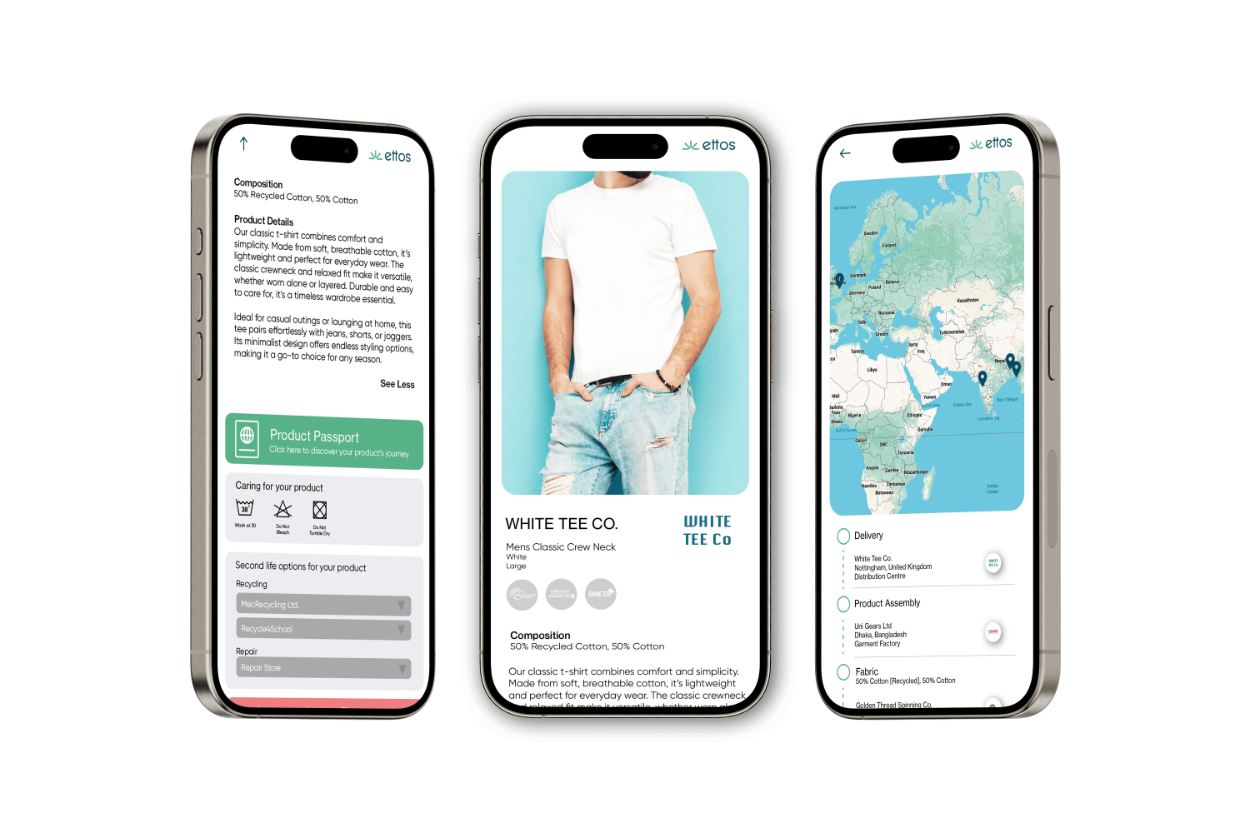
Similar to the sentiment of trepidation surrounding DPPs and other sustainability regulations, some brands and retailers are hesitant to leverage technology for supply chain mapping due to concerns over their existing data quality or an outright lack of data. The reality is that many brands do not have oversight over their tier 2 and tier 3 suppliers, and the reasons for this are multi-pronged. Brands often focus primarily on their direct suppliers – neglecting the deeper tiers that provide raw materials or components. This leads to limited transparency and a lack of access to detailed information about who their suppliers work with. Without this information, it becomes difficult to monitor practices and conditions beyond the first tier. Smaller brands, in particular, may not have the resources or personnel to trace their supply chains thoroughly; leading to an oversight of tiers further down the line.
Another major hurdle is data collection and management. Brands may struggle with inconsistent reporting standards and data quality, making it hard to maintain complete oversight. Tied into this is the fact that suppliers can be located in different countries, creating logistical challenges for brands in monitoring operations and compliance with standards.
While managing these challenges is ultimately brands’ responsibility, ettos helps to bring the pieces together by unifying brand and supplier information in one centralised, real-time system. From certifications to compliance documentation, ettos consolidates everything needed in a single, easy-to-access hub. The platform’s API can integrate into businesses’ internal systems and enables a bulk data upload – making it effortless to import supplier and product data at scale, giving brands a real-time, comprehensive view of their supply chains for smarter, faster decision-making.
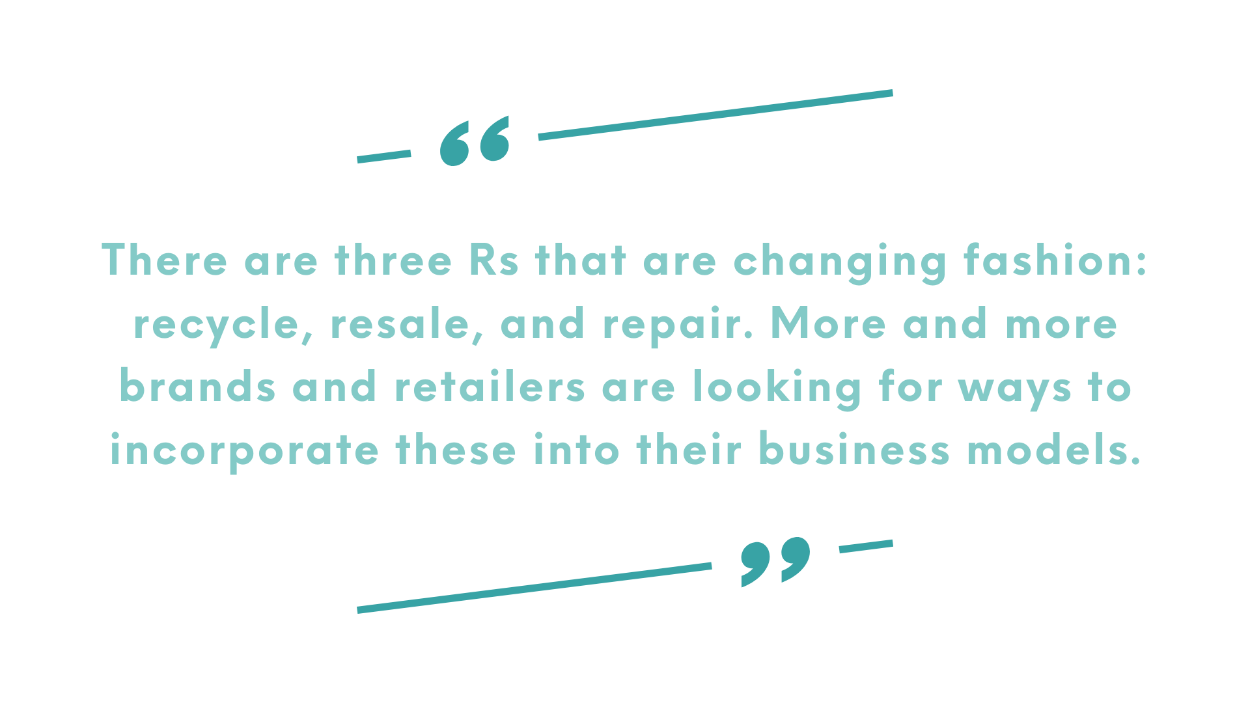
For brands ready for granularity and for those aspiring to get there, ettos provides bill of materials (BOM)-level tracking, and an extensive component library that enables category specific traceability and increased flexibility for category niches, like footwear. In line with this kind of fashion future-proofing, ettos’s platform goes one step further by supporting brands pursuing ambitious traceability strategies by providing transparency insights and analytics. This is done by using the provided data to assess the business’s current position and provide guidance that can drive them forward to their next milestone. For instance, the platform can provide insights that can distil what percentage of a brand’s supply chain is traced back to tier 4.
Sustainability: the priority for fashion’s commercial and environmentally-conscious future
Material authenticity
This is an area of growing importance for brands and retailers, especially in light of legislation like the EU Green Claims Directive, that will see brands needing to meet new criteria to ensure the abolition of making misleading claims about environmental merits of their products and services. Meanwhile in the US, the Federal Trade Commission’s (FTC) Green Guides are designed to help marketers avoid making environmental claims that mislead consumers. And the UK Green Claims Code is similar to the EU’s regulation and comprises a set of key points to help companies check if their claims are genuinely green. These include that fashion businesses must make any environmental claims in plain language and accurately, presented in a way that consumers can easily identify and understand, and must not be hidden by other information such as information displayed in signs, banners and as pop-up text and images that may be seen online.
Ensuring the accuracy of sustainability claims made by brands and retailers is vital for building consumer trust and loyalty in today’s growing environmentally conscious market. As consumers become increasingly discerning about the brands they support, they are more likely to scrutinise sustainability claims. If a brand is found to mislead consumers or present inaccurate information, the fallout can be damaging: leading to a loss of credibility, negative publicity, and a decline in sales. The stakes are also higher: consumers are more informed than ever, often using social media and online platforms to share their experiences and hold brands accountable. This amplifies the risk for brands that fail to substantiate their sustainability claims, as negative reviews can spread rapidly – further eroding consumer confidence.
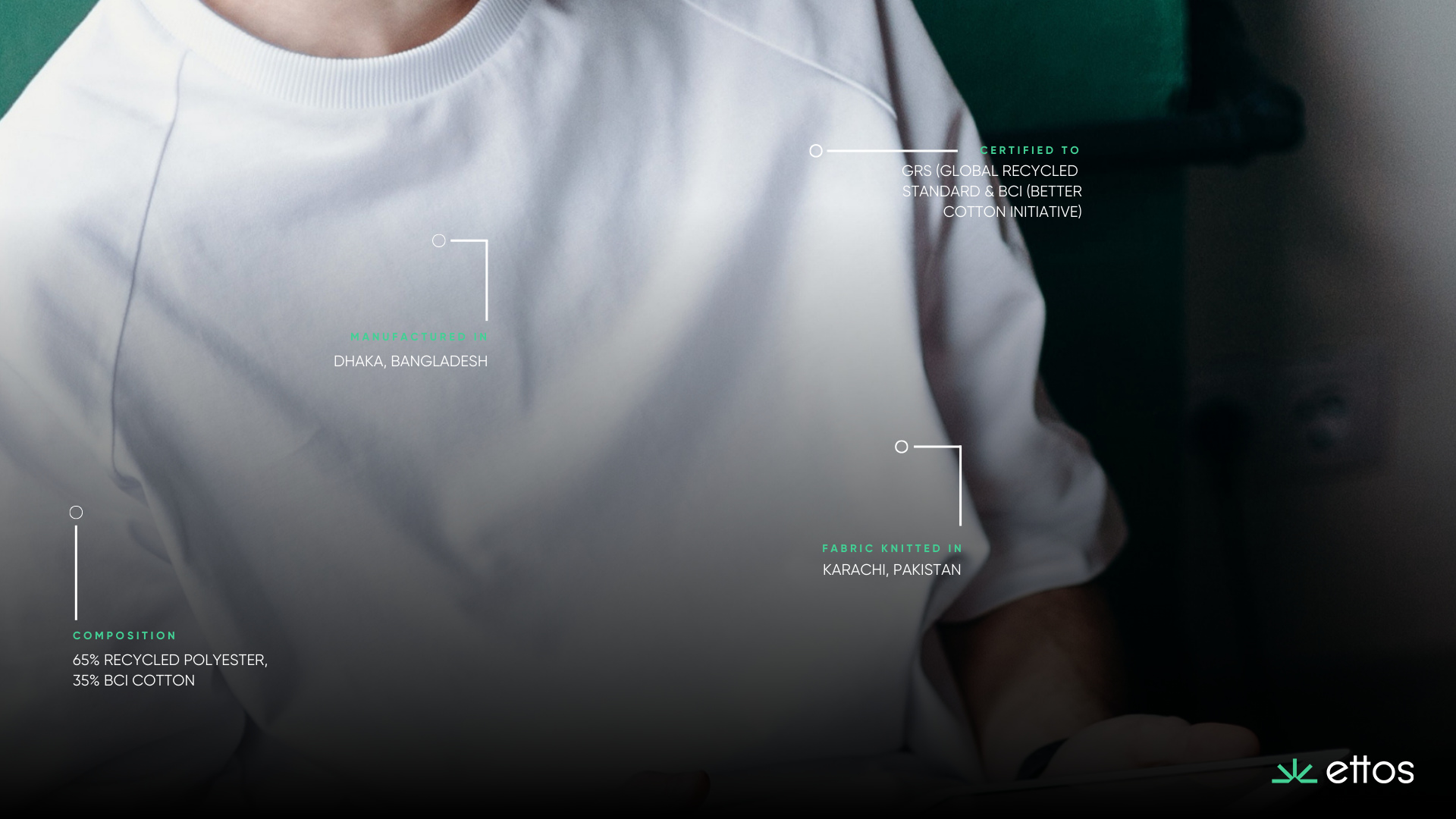
Accurate sustainability information plays a part in building consumer trust, but also for driving meaningful improvements in a brand’s environmental impact. When brands have reliable data regarding their materials, production methods, and supply chain logistics, they can identify specific areas where they can reduce their carbon footprint.
By analysing this data, brands can prioritise suppliers that embrace sustainable practices or transition to better materials. They can also evaluate their energy consumption during manufacturing and identify opportunities to switch to renewable energy sources or implement energy-efficient technologies. This comprehensive understanding not only spotlights areas for improvement, but also enables brands to set measurable sustainability goals, track progress, and communicate their achievements transparently to consumers, investors, and governing bodies.
Ettos has set out to make this easy by enabling tracking and management of scope certificates and audit reports, making building auditable chains of record, storeíng evidence and monitoring non-compliance risks within the product certification process easier than ever. The platform also makes batch level certification swift and uncomplicated for brands, as ettos automates evidence requests for Transaction Certificates (TCs), and brands can approve or reject submitted evidence with a single click, ensuring all evidence is valid. Ettos also supports industry’s major social and environmental standards and certifications – including B Corp, GRS, Sedex, Accord, and LEED. For partners who may worry about the complexity of the technology, Ettos has introduced a user-friendly traffic light system, providing clear visual cues to make insights more accessible.
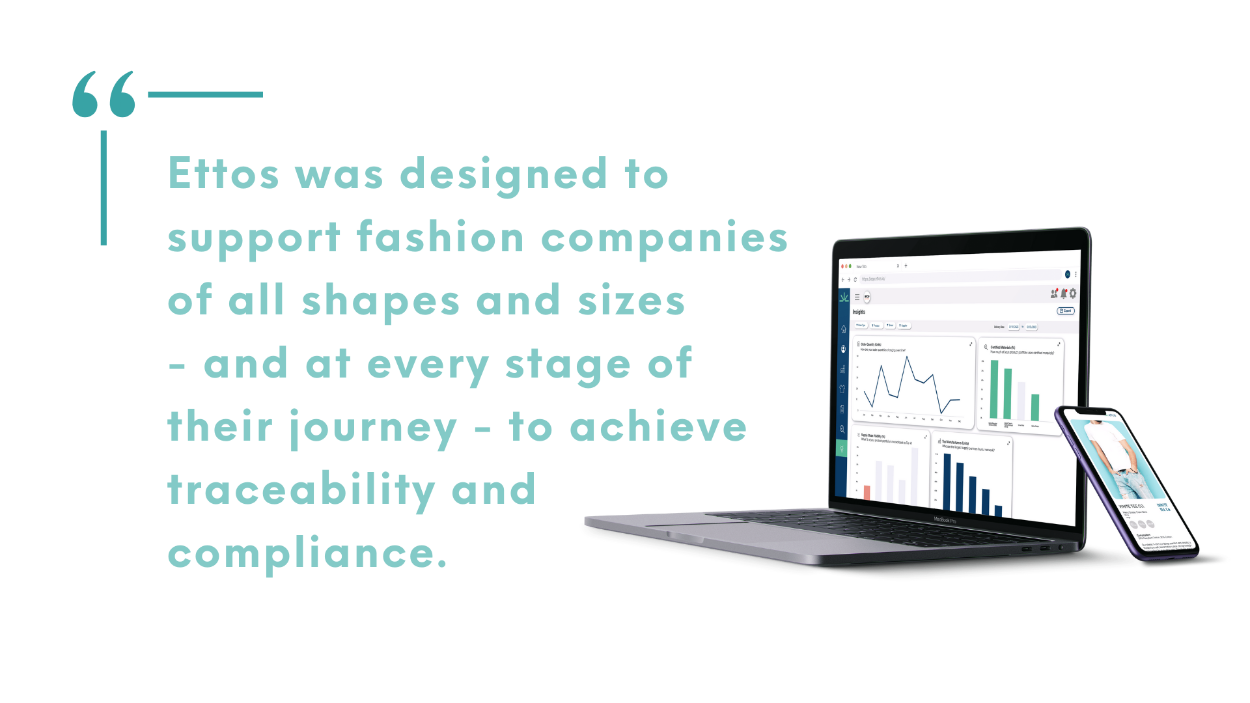
Second-life solutions
There are three Rs that are changing fashion: recycle, resale, and repair. With this in mind, more and more brands and retailers are looking for ways to incorporate these into their business models. In terms of sustainability, the EU’s ESPR is also relevant here, as the law establishes a direct ban on the destruction of unsold apparel, clothing accessories, and footwear within the EU. Part of this is the Strategy for Sustainable and Circular Textiles, where all textile products must be durable, repairable, and recyclable by 2030.
As well as being an integral part of fashion’s sustainability story, the resale industry is projected to reach £140 billion by 2027. This is a sizable opportunity for brands to incorporate pre-owned products into their business strategies that shouldn’t be overlooked.
To support their brand partners to build for this future, ettos’s platform – specifically their Digital Product Passports – aims to help brands extend the lifecycle of their clothing by empowering consumers with information on how to responsibly dispose of their garments. This supports both the sustainability and business side of brands’ need to meet the market, which is growing more focused on the three “Rs”: repair, recycle or resale. Many of ettos’s partners find being able to link directly to a preferred resale platform incredibly useful, if this is a brand’s specified solution.
The clear path forward
Without transparency, the fashion industry is not going to achieve all that it needs to in terms of environmental sustainability or ethics. And change is desperately needed. While the wheels of the law have begun to move when it comes to legislation around better visibility of the supply chain, brands and retailers must do their best to ensure responsible practices.
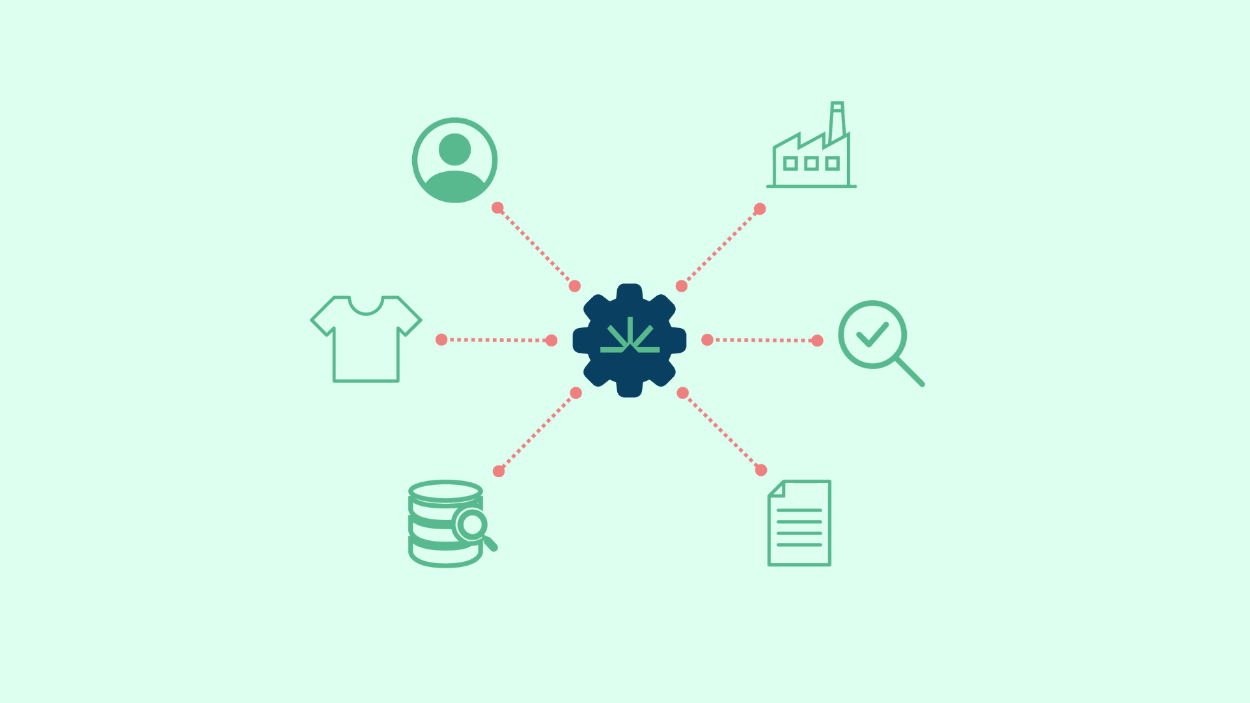
Ettos was designed to support fashion companies of all shapes and sizes – and at every stage of their journey – to achieve traceability and compliance. The road ahead for brands and retailers will not be easy, but taking the first steps, or putting one foot in front of the other and not giving up is critical. And having all relevant information and data in one central hub, and working with a partner like ettos that understands the brand, supplier, and manufacturer’s perspectives, could make all the difference.
About our partner: Ettos is an advanced supply chain traceability platform designed specifically for fashion and footwear brands. The fully integrated digital platform helps brands to manage environmental, social, and corporate governance (ESG) claims, track full product journeys in real time using a ‘Digital Product Passport’ and engage effectively with their verified suppliers at batch level.
Get in contact with the ettos team today for more information or to book a demo and see how ettos can benefit your business.

